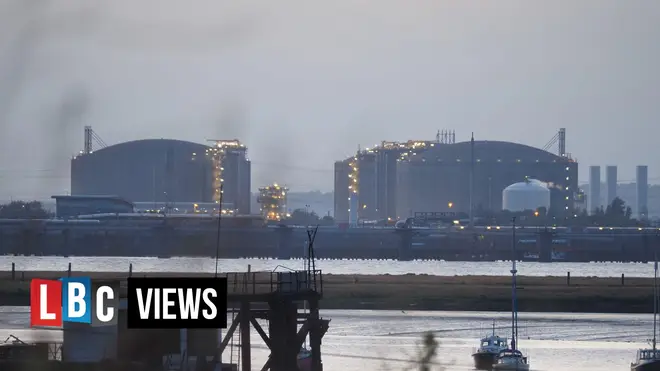
Shelagh Fogarty 1pm - 4pm
1 August 2023, 11:06

When Vladimir Putin invaded Ukraine, he hoped to weaken the Western response by holding over Europe its dependence on Russian energy imports.
In September 2022, he warned that price caps on Russian gas would leave Europe to “freeze, freeze.” Yet Europe imposed unprecedented sanctions on Russian energy with its resolve intact. And the UK with its comparatively low reliance on Russian energy sources completely cut off Russian energy imports.
While Western resolve meant Russia’s attempt to weaponize energy sources failed, the consequences of sanctions hit European households as energy prices spiked causing massive economic and social challenges. In the UK specifically, gas prices were up by a shocking 129.4% in the year to March 2023, with electricity prices rising by 66.7% - and the UK entered its cost-of-living crisis.
These shocking prices also led to substantial life changes for many Britons – with 38% opting to bath or shower less, and 59% reporting that they were eating out less, among other things.
As we approach the election year, any party wishing election success must address the key political concerns of British people. The data is unequivocal, the energy and living-cost crises remains the key concern of Britons.
To date, 92% of UK citizens say that the most critical issue is the cost of living.
Attempts to address the crisis created a turbulent political atmosphere - which saw Liz Truss ousted in just 49 days - and finding resolution remains a chronic problem for British politicians.
Not only is an end to Russia’s war and their weaponization of energy sources nowhere near in sight, but as the latest report by The Henry Jackson Society shows, the UK energy supply system also suffers from several structural weaknesses that need to be urgently addressed to mitigate the energy crisis.
The UK has extremely limited storage capacity – and is only able to store gas for a few days of use in comparison to its many European neighbours that can store gas for a few months. The UK also has some of the least energy-efficient households – with over 50% of households rated D or lower – and is extremely reliant on imports through a diverse energy supply system, meaning the country will always be able to get gas but can easily fall victim to price volatility.
To mitigate political risk - the government should continue with its price caps and where possible, such price caps ought to be income sensitive – lower for those who are particularly vulnerable – as the data shows that the difference between the cost burden on poor and rich households is vast.
The UK must motivate people to save energy and provide strong information campaigns. Businesses and public institutions that opt for energy saving this winter ought to be rewarded via tax and other incentives. Finally, the government must fully commit to its own improvement projects to make British households more efficient.
The last year has been one of the most politically turbulent on record, and the trust of people in politicians and the system has been shaken.
Thus, any policy promised or pledged needs to be implemented consistently - leaders cannot afford continued U-turns.